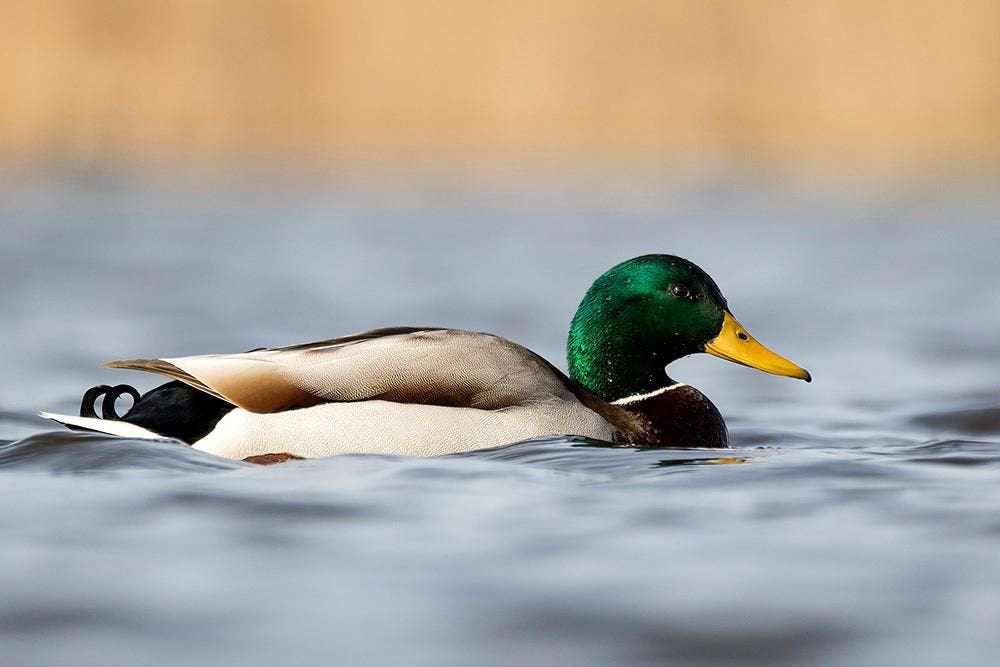In lakes and pools that appear physically cut off from other bodies of water, fish sometimes seem to materialize out of nowhere. This somewhat mystical sounding theory might not be far off: a new study suggests fish eggs may simply fall from the sky.
In experiments, some fish eggs hatched after being pooped out by ducks, suggesting that feathered flight could facilitate seemingly immaculate piscine invasions, reports Priyanka Runwal for Audubon.
How isolated waters become populated by fish has been an open question for centuries, Patricia Burkhardt-Holm, a fish biologist at the University of Basel, tells Carolyn Wilke of Science News.
As long ago as the 1800’s naturalists proposed that birds might have a hand (or a beak, foot or feather, as the case may be) in carrying fish eggs to far flung locales, reported Richa Malhorta in 2019 for Hakai. The idea was intuitive enough to stick around, but when researchers searched for the data to back up the claim, as they did in a 2018 review paper, the literature was found wanting.
But a 2019 study found that the intrepid eggs of the killifish, which can enter a kind of hibernation to survive dry spells buried in sand and soil, were able to survive a trip through both ends of a swan.
The current study, published in the journal the Proceedings of the National Academy of Sciences, examined the potential role of ducks in dispersing fish eggs. According to Audubon, prior research has shown that mallards provide such a service to plant seeds, and the researchers wanted to see if fish eggs might also pass through the ducks unscathed.
Researchers fed eight captive mallards the fertilized eggs of two invasive fish species: the common carp and the Prussian carp, according to a statement. The researchers fed each duck roughly 500 eggs from each type of carp. Six of the ducks passed living eggs in their feces, but researchers were only able to recover a total of 18 intact eggs, of which just 12 contained living embryos. Nine more eggs died due to fungal infection, but one baby common carp and two Prussian carp successfully hatched, according to the paper.
These odds might seem like a vanishingly small success-rate, but a single common carp can lay up to 1.5 million eggs, several times a year, according to Audubon—and mallards are virtually ubiquitous in North America, Asia and Europe.
The ducks pooped out most of the viable eggs within an hour, per Science News, but one took at least four hours. The researchers tell Science News that such a time window would afford ducks enough time to fly ten or even 100 miles away from the source of a fish egg meal.
The researchers suggest it’s a simple numbers game: With so many fish eggs and so many ducks, even a tiny percentage of surviving eggs is significant and could provide an answer to a question that has long bedeviled scientists. Next, the researchers tell Audubon they plan to repeat the experiment with other fish species.

Rudeboy67 on March 25th, 2021 at 16:38 UTC »
Spirit Lake right by Mount St. Helens was completely devastated and all life in the lake was obliterated with the 1980 eruption. As early as 1993 they have been finding trout back in Spirit Lake. US Forestry Service was convinced, convinced, that anglers were illegally stocking the lake. They DNA typed the fish to find out what hatchery they came from and staked out the lake trying to catch them. No luck so far.
icilypeaches on March 25th, 2021 at 16:12 UTC »
That’s the most interesting thing I’ve read in months.
snuzet on March 25th, 2021 at 15:20 UTC »
Fish seeds